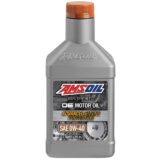
ACEA introduces new engine oil sequences to enhance fuel efficiency
With the global emphasis on reducing greenhouse gas emissions, countries are implementing stricter fuel economy standards to minimise fuel consumption and emissions from vehicles.
Modern combustion engines, including those in development, are designed for maximum efficiency. This entails achieving minimal friction without sacrificing wear resistance. To fully harness the potential for fuel economy, engine oils with viscosities even lower than the prevalent European 0W-20 grades are essential.
In response, ACEA’s Light-duty Lubricants Taskforce (TF-LDL) conducted a survey among ACEA’s light-duty vehicle members. The outcome was the introduction of a 0W-16 viscosity grade oil suitable for both gasoline and diesel engines. This led to the creation of the C7-23 oil category, which builds upon the C6-21 performance level. This new category addresses the demand for engine oil that bolsters fuel efficiency. Specifically, the ACEA C7 is the SAE 0W-16 counterpart of the ACEA C6-2023, targeting a 0.3% fuel economy limit in the JASO FE M366 test.
To produce a C7-23 oil, adjusting the viscosity to the 0W-16 grade is all that’s required, eliminating the need for a new base oil or formulation.
The 2023 Sequence, which succeeded the 2021 version, also ensures the extension of the two Coordinating European Council (CEC) tests, L-111 and L-106, until 2028. Similarly, the CEC L-099 diesel wear test, which was removed in the 2021 ACEA Light-duty Oil Sequence due to its limited lifespan, has now been extended until at least 2027. ACEA’s light-duty members appreciate the option to use the CEC L-099 for established oil categories, including A3/B4, A5/B5, C2, C3, C4, and C5.
Another key change is the revival of the OM646LA wear test, exclusively for the 2016 ACEA legacy categories: A3/B4, A5/B5, C2, C3, C4, and C5. These limits align with the 2016 ACEA Light-Duty oil sequences. Furthermore, the complete grandfathering of the VW TDI2 for the VW TDI3 remains permissible for all categories, including the new C7.
With the European Union’s recent green initiatives, engine oils play a pivotal role in amplifying fuel economy and curtailing CO2 emissions. The Technical Association of the European Lubricants Industry (ATIEL), in collaboration with ACEA and ATC (the European additive manufacturers association), played an instrumental role in the release of these new sequences. This collaboration benefits all automotive industry stakeholders, especially consumers. The existing European framework facilitates discussions on current and upcoming technical challenges and trends affecting engine design. The synergy between ACEA, ATIEL, and ATC underscores the importance of crafting specifications that cater to the requirements of both vehicle hardware and lubricant technology. This ensures the widespread availability of top-tier lubricants in the market.
.jpg)









